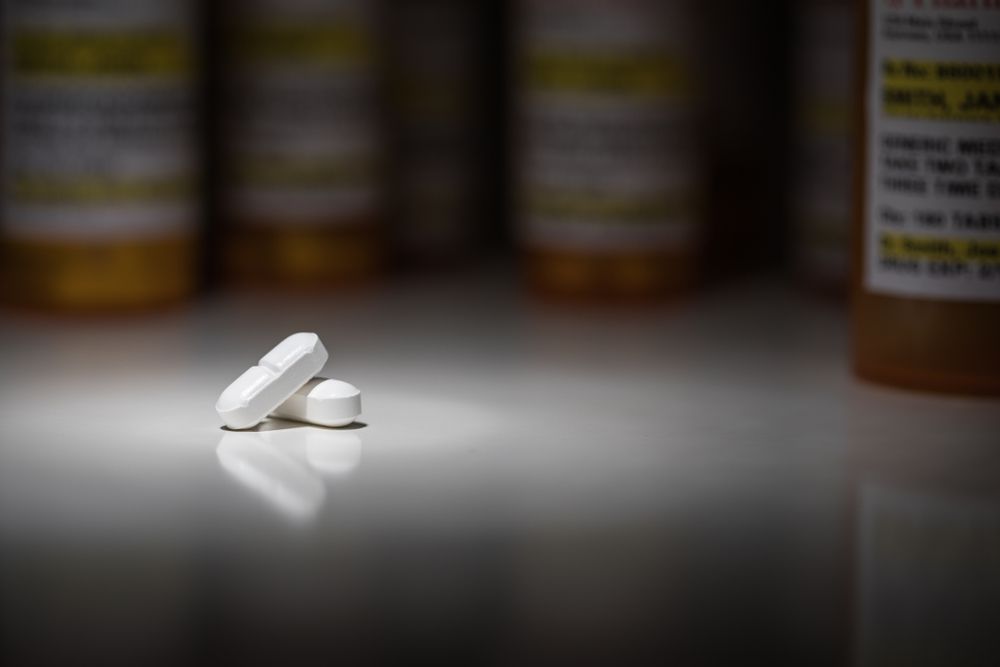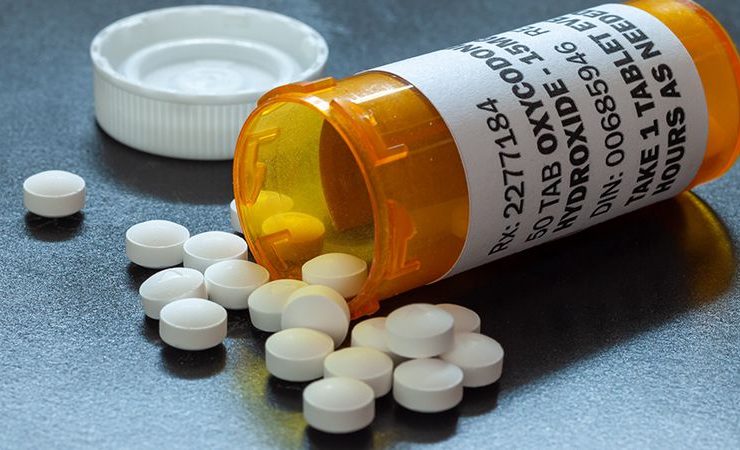How to Prevent Opioid Addiction Relapse
Recovery is the first step to getting better. The next most important step is how to prevent opioid addiction relapse? Someone who has suffered an addiction can have a relapse at any time. According to the National Institute on Drug Abuse, about 40 to 60% of people recovering from opioid addiction experience a relapse.
Sadly, when relapse occurs many people see their treatment as a failure. However, this isn’t the case. It only indicates that the treatment has to be adjusted or reinstated. For this reason, you must equip yourself with tips to prevent opioid relapse.
We know you may find it hard to control your desire to return to substance abuse. It may even seem debilitating when these triggers are beyond your control. Acknowledging all these, we’ll discuss the signs and ways to prevent a relapse in this blog. Plus, we’ll chip in the programs that’ll assist you with opioid relapse.
What is Opioid Relapse?
In this case, relapse simply means abusing opioids again after a long time without using. Relapse varies in duration and intensity.
For some people, it may last for a short period while in others it may last longer. At the same time, it may come with acute withdrawal symptoms for some addicts.
Signs of Opioids Relapse
To prevent addiction opioid relapse, you need to know the signs. This will allow you to take immediate action in quashing it.
Opioid abuse is a chronic condition that can affect the way your brain works. Thus, many factors can trigger a relapse. If you encounter these factors frequently it’s likely a relapse is impending. That said, here’s how to recognize signs of opioid relapse.
Emotional stress
This is the most common cause of relapse. When faced with stress, particularly the emotional kind, you may experience withdrawal symptoms that you’ll struggle to control. This stress may manifest as depression, anxiety, trouble sleeping and restlessness. During situations like these, it means you’ll need assistance to cope with them properly.
Lack of support
Addiction recovery is not just about personal growth. People recovering from addiction will continually need the support of their families and friends to get better. Now, when this support is absent. These patients may feel isolated and return to abusing opioids.
Boredom
If you find yourself idle most of the time, there’s every tendency you’ll have the urge to fall back to abusing opioids. The reason is, boredom will make you tempted to use opioids. Besides, it may leave you with many opportunities to experience a relapse.
Financial problems
A person struggling with finances may find it hard to prevent addiction opioid relapse. This is a significant reason that must have led to the initial abuse of the substances. Thus, it’s not surprising that it may trigger a relapse the second time.
Below are some other signs of opioid relapse:
- Relationship issues
- Visiting certain places or people
- Practicing old habits
- Particular sights and smells
Tips to Prevent Opioid Relapse
For you to prevent opioid addiction relapse, there are several skills you must acquire. One common mistake among addiction patients is they only use these tips when faced with an urge to use opioids. However, relapse addiction steps should be included in your daily routine or schedule.
This will lower your risk of relapsing and ensure you achieve long-term goals. Besides, many rehabs offer these prevention techniques as part of their opioid addiction treatment process. Here are the tips and steps you should follow to control and prevent a relapse. No doubt, they’ll keep you on track during recovery.
Identify your triggers
Knowing your triggers is the first step to prevent opioid addiction relapse. Triggers can be manifested internally or externally. Certain places, situations or people can make you go back to abusing drugs. Hence, you must make a list of these possible triggers and avoid them.
Seek professional help
After identifying your trigger, the next thing to do is seek help. We’re aware you may try to overcome it yourself. Probably because you may feel embarrassed about it. However, you’ll get the best opioid relapse prevention results with professional support. Struggling with relapse alone can be detrimental to your health.
With professional assistance, you’ll get the necessary treatment that’ll help with your withdrawal symptoms. Opioid addiction treatment experts can teach you how to cope with cravings and negative thoughts that may drive you to drug abuse again. If your situation is acute, they may suggest treatment programs like detox and rehab for recovery.
Join support groups
You’re not the only person struggling to prevent opioid addiction relapse. There are several others like you. By participating in support groups, you’ll get to meet people who understand what you’re going through. Some popular support groups include Narcotics Anonymous(NA) and Alcohol Anonymous(AA).
Related Article: Why You Need to Seek Help Getting Rid of Opioids
Avoid stress
As mentioned earlier, emotional stress is the most common cause of relapse. Luckily for you, there are grounding techniques to help with it.
These techniques will help you cope when you develop the desire to use opiates. Most importantly, they’ll enable you to separate yourself from the distress that comes with emotional situations.
Here’s how to practice these steps to avoid opioid relapse:
- Stretch: This requires you to perform light stretches while focusing on your breath control.
- Breathe: Try “box breathing”. Here, you’ll hold your breath for 4 seconds, breathe in for 4 seconds and breathe out for 4 seconds. Doing this will help you feel calm and relaxed.
- Mindfulness: This is also called the 5-4-3-2-1 exercise. This requires that you identify one taste, two smells, three textures, four different sounds and see five objects. You’ll be focusing your body senses on other things aside from your thoughts about using drugs.
Recall your reason for quitting
Remember, you began addiction treatment for a reason. Whenever you feel like going back, think of why you stopped taking it. Think about how it made you sick. If you spent days in rehab, recall how it felt staying without your loved ones during that period.
Simply focus on the goals you want to achieve without addiction. Probably, you have a dream job you want to keep or a damaged relationship you desire to rebuild. Above all, think of how excellent your life will turn out without drug abuse.
Get busy
You’ll find it difficult to prevent opioid addiction relapse if you’re idle. This will likely make you think about using opioids again. Gently push those thoughts aside by concentrating on more productive pursuits.
You can also take walks, watch movies or read a book. Most opioid cravings will last for about 15 to 30 minutes. Therefore, if you successfully distract yourself for a short time, you can prevent a relapse.
Have an emergency contact
This is very important when starting your recovery journey. In fact, many doctors advise you to always have an emergency contact. Preferably, choose someone you can trust and rely on.
Hence, anytime you have struggling moments that may make you fall back to your old addictions, you can call your friend. This person will talk you out using drugs and remind you of why you quit.
Give yourself rewards
How to avoid opioid relapse? Reward yourself. Recovery is difficult and maintaining it is even harder. Set milestones for yourself. For every milestone that you pass successfully, give yourself credit.
Staying one week or one month sober certainly deserves a reward. You can go shopping or spend the day at the spa as a reward. No doubt, this will serve as a reason to keep you going.
Focus on self-care
Aside from seeking solace in opioids, there are many things you can do to feel better. The most acute withdrawal symptoms people experience is fatigue and insomnia. During this period, you’re likely to care less about your physical health. By implementing a self-care schedule in your life, you’ll prevent the risk of cravings.
Therefore, ensure you get enough sleep. About 7-8 hours every day should do it. Also, eat a balanced diet alongside vegetables, fruits and whole grains. Finally, don’t forget to exercise daily. With these healthy habits, you’ll have more control over your life. Lastly, participate in activities that make you happy.
Manage your triggers
If you can recognize the signs of an opioid relapse then you can manage it effectively. When you experience symptoms like shaking, sweating or nausea, you should know you’re supposed to take your medications. By suppressing the symptoms even before they escalate, you’ll be doing yourself a great favour.
Treatment Programs That Help with Opioid Relapse
Opioid addiction relapse comes with both physical and psychological factors that can be effectively managed with treatment. Oftentimes, it’s initially treated with medical detox.
This will immediately remove the drugs from your body and minimize the effects of withdrawal. Other addiction treatment programs for relapse include:
- Cognitive Behavioral Therapy
- Rational Emotive Behavior Therapy
- Contingency Management
Related Article: Opioids: The Cause of Deadly Addiction Crisis But Still Necessary
Conclusion
There are many weak moments you’ll face in a bid to prevent opioid addiction relapse. In fact, you may experience the urge to relapse so frequently that your efforts may seem fruitless. However, keep in mind that recovery is challenging. If it wasn’t, you won’t be experiencing a relapse. The best you can do is be kind to yourself as well as practice these opioid relapse prevention tips.
Acknowledge it’s a long process and that abstaining is in your interest. No matter how long you’ve been sober, you’re still at odds of relapsing. If you notice any signs that may cause opioid relapse, seek professional help. Here at Inspire Change Wellness Addiction Treatment Center for Men, we will equip you with skills to cope with stressors. Not to mention, we’ll teach you strategies on how to manage them. Contact us today!






